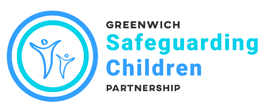Resolving Disputes
Occasionally situations arise when workers within one agency feel that the actions, inaction or decisions of another agency do not adequately safeguard a child. Disagreements are most likely to arise around:

- Levels of need/thresholds
- Roles and responsibilities
- Decisions made at a Child Protection Conference or Core Group meeting
- Progressing plans
- Communication
All professionals have a duty to act assertively and proactively to ensure that a child’s welfare is the paramount consideration in all professional activity.
Therefore all professionals must challenge the practice of other professionals where they are concerned that this practice is placing children at risk of harm.
Whistleblowing
Whistleblowing is when someone raises a concern about a dangerous or illegal activity or any wrongdoing within their organisation.
Sharing information or talking through a concern can be the first step to helping an organisation identify problems and improve their practices.
 If you think an organisation is putting children at risk, even if you’re not certain contact the NSPCC’s Whistleblowing Advice Line. They offer free advice and support to professionals with concerns about how child protection issues are being handled in their own or another organisation.
If you think an organisation is putting children at risk, even if you’re not certain contact the NSPCC’s Whistleblowing Advice Line. They offer free advice and support to professionals with concerns about how child protection issues are being handled in their own or another organisation.

